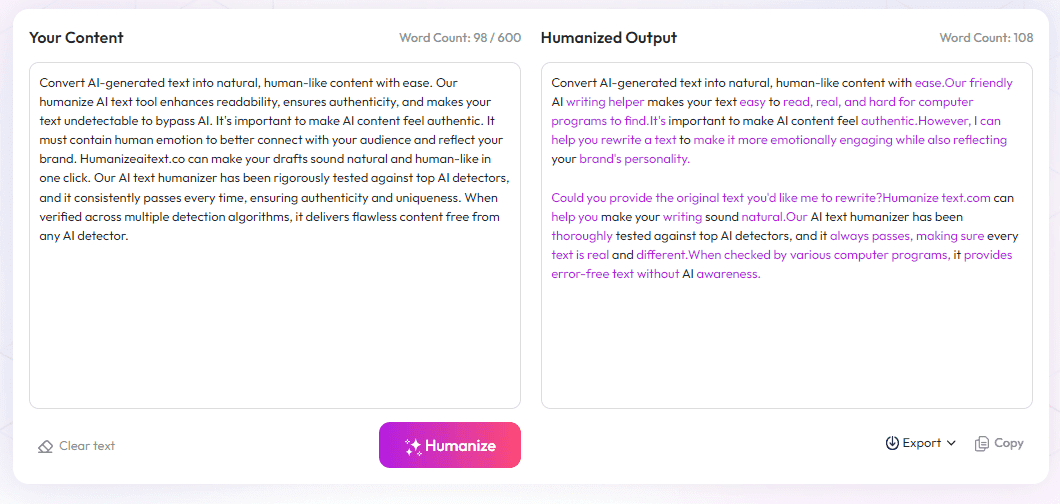Table of Contents
If you’re an author trying to figure out how to get the most from your income tax deductions, you’re not alone. Taxes can feel like a puzzle, especially when you're juggling writing, researching, and living your best creative life. But don’t worry—reading on might just reveal some easy ways to save money on your taxes.
Keep going, and you could learn which expenses qualify and how to keep track of everything. This way, you won’t miss out on deductions that could put more money back in your pocket when tax season rolls around.
Here’s a quick peek: we’ll cover what deductions authors can claim, who’s eligible, and simple tips on handling the paperwork.
Key Takeaways
Key Takeaways
- Authors can deduct expenses like marketing, office supplies, professional services, travel, and home office costs to lower taxable income. Keep receipts and records to back up these deductions.
- If you earn income from writing or royalties and run it as a business, you can claim these deductions. Part-time writers should also track expenses if writing is a serious business activity.
- Common deductions include promotions, equipment, professional help, travel, research materials, and education costs. Detailed records are key.
- Running your writing as a business allows you to deduct many expenses—software, manuscript development, memberships, and marketing efforts.
- Extra benefits like the Qualified Business Income Deduction, retirement contributions, vehicle expenses, and health insurance deductions are available to self-employed authors.
- Stay organized with digital tools and categorize expenses. Save receipts and keep logs of travel and meals to maximize deductions and avoid issues during tax time.
- For tax filing, most authors use Schedule C and Schedule E, along with Forms 1099 if applicable. Partner with a tax pro to ensure correct submissions.
- Authors earning income should pay estimated taxes quarterly, using last year’s income for guidance. Proper planning prevents penalties and surprises at tax time.

1. What Are the Main Income Tax Deductions for Authors?
Authors can claim a variety of deductions to lower their taxable income, saving money when tax season arrives. The most significant deductions typically include expenses directly related to writing, publishing, and promoting their work. For example, costs for marketing efforts such as book launches, social media advertising, and email campaigns are fully deductible. These expenses help boost sales and visibility, so they count as business costs.
Office expenses are also a biggie. Laptops, printers, desks, chairs, and even software subscriptions (like Scrivener or Grammarly) can be deducted if used exclusively or primarily for writing. It's smart to keep receipts and records to back up these costs.
Professional services such as payments to editors, cover designers, and illustrators fall under deductible expenses—these are part of the costs to get your books ready for publication.
Travel for book signings, conferences, or research can be deducted, including transportation, lodging, and meals—just keep detailed records. If you host a home office used solely for writing, a portion of rent or utilities might be deductible too.
In 2025, up to 50% of costs related to creative and journalistic activities, like earning royalties or copyright transfers, can be claimed as deductions, but only for specific income types.
If you’re curious how to maximize deductions, consider exploring how to publish a graphic novel or similar resources to see what business expenses others claim.
2. Who Can Claim Author Income Tax Deductions?
Typically, anyone earning income from writing and related activities can claim deductions if they are self-employed or running a business as an author. This includes traditionally published writers, self-published authors, freelance journalists, bloggers, and content creators.
If you receive royalties, earn from copyright transfers, or sell your books independently, you’re considered self-employed and eligible for these deductions. Just make sure your income and expenses are part of a legitimate business—you can’t claim personal expenses as deductions.
Part-time writers can also claim deductions if their writing is intended as a business and they keep detailed records of their expenses. The key is actively engaging in the business of writing, not just writing as a hobby.
To stay on the right side of the IRS, track every business expense diligently, and consider consulting a tax professional to make sure all your deductions are justifiable.
3. Common Tax Deductions Authors Should Know About
Here’s a quick list of deductions many writers overlook but should keep in mind:
- Advertising and promotion: Book launches, online ads, promotional materials.
- Office supplies and equipment: Laptops, printers, writing software, stationery.
- Professional services: Editors, cover designers, beta readers.
- Travel and meals: Attending conferences, book signings, research trips.
- Home office: A specific part of your home allocated solely for writing purposes.
- Research materials: Books, subscriptions, or courses related to your writing projects.
- Education and training: Workshops, online courses, or seminars to improve your craft.
Remember, the more detailed your records, the easier it is to prove these expenses to the IRS if needed.
4. Deductible Business Expenses for Writers and Authors
Running your writing career as a business? Then your expenses for keeping the lights on and your projects moving forward are deductible. This includes equipment like tablets or doodle pads used for brainstorming, as well as software subscriptions such as writing and editing tools.
It's also smart to track costs associated with developing your manuscript, even before publication—things like research trips or manuscript formatting fees, especially if you realistically expect to publish your work.
Other deductible costs include participating in writer’s groups, membership fees for professional organizations, and even some marketing campaigns like mailing list services or book review submissions.
Knowing what can be deducted makes a big difference—so keep a detailed log and save all receipts.
Want to see what it takes to get your book out into the world? Take a peek at how to get a book published without an agent.

5. Additional Deductions and Tax Benefits for Authors
Beyond the common deductions, authors might qualify for other tax benefits like the Qualified Business Income Deduction, which allows self-employed creators to deduct up to 20% of their business income, subject to certain limits.
Retirement contributions, such as setting up an IRA or solo 401(k), can also help reduce taxable income while planning for the future.
If you use your vehicle for work-related travel, you may be able to deduct mileage or actual expenses—just keep detailed logs of your trips.
Expenses related to health insurance premiums for self-employed authors can often be deducted, lowering your overall tax bill.
Investments in professional development, like online courses or industry memberships, may sometimes qualify for education-related deductions.
Don’t forget about possible credits for hiring freelancers or assistants, which can add to your savings.
Stay updated on tax law changes every year—what’s deductible today might change tomorrow, so it pays to double-check with a tax expert.
6. How to Keep Records to Save on Taxes
The key to making tax time easier? Keep things simple and organized. Use digital tools like budgeting apps or dedicated folders for receipts and invoices.
Create a system for categorizing expenses—think folders for office supplies, travel, professional services, and marketing—so you can find everything quickly.
Snap photos of receipts with your phone using apps like Expensify or Shoeboxed, which can automatically organize and categorize your expenses.
Maintain a detailed log of all business-related travel and meals, noting dates, locations, and purpose—forgetting to do so might mean losing deductions.
Save all bank and credit card statements related to business transactions; they serve as backup if your deductions are ever questioned.
Set aside time monthly to update your records, rather than trying to catch up during tax season.
Consider consulting a tax pro or accountant to ensure your record-keeping aligns with current IRS rules, especially as your business grows.
7. Essential Tax Forms for Authors
Most self-employed authors will need to fill out Schedule C (Profit or Loss from Business) attached to their Form 1040 to report income and expenses.
If you received royalties, you'll also need to report them on Schedule E (Supplemental Income and Loss).
Form 1099-MISC or 1099-NEC will be issued if you earned over $600 from freelance work or miscellaneous income, and you'll want to keep those records handy.
For deductions related to health insurance, you might need to file Form 8889 or Schedule 1.
If you're contributing to a retirement plan, certain forms may be necessary to report those contributions.
Don't forget to keep copies of any receipts, invoices, or bank statements that support your deductions—these may be needed if you're ever audited.
Navigating these forms might seem daunting, but partnering with a tax professional can help ensure you're filing everything correctly.
8. Paying Estimated Taxes as a Self-Employed Author
If you're earning money from writing, royalties, or freelance projects, chances are you'll need to pay estimated taxes quarterly.
This means setting aside a portion of your income each month to avoid a hefty bill at tax time and possible penalties.
Calculate your estimated tax payments using last year's income as a guide, or consult IRS worksheets for a more precise figure.
Make sure to submit your payments on time—generally in April, June, September, and January—to stay in good standing.
Use IRS Direct Pay or the Electronic Federal Tax Payment System (EFTPS) for quick and secure payments.
Keeping good records of your income and expenses helps you estimate accurately and avoid surprises.
And don’t forget: if your income fluctuates greatly, adjust your estimated payments accordingly to prevent overpayment or underpayment.
FAQs
Authors can deduct expenses like writing supplies, professional services, marketing costs, travel related to book promotion, and home office expenses. These deductions help reduce taxable income and can result in tax savings.
Self-employed authors, freelance writers, and those earning income from writing activities can claim deductions. Typically, individuals managing their writing as a business are eligible for these tax benefits.
Authors should be aware of deductions for office supplies, software, research expenses, travel for events, and work-related education. Tracking these costs can lower taxable income and maximize refunds.
Authors should maintain detailed receipts, invoices, and bank records of all business-related expenses. Using spreadsheets or accounting software can help organize and track deductible costs accurately throughout the year.



